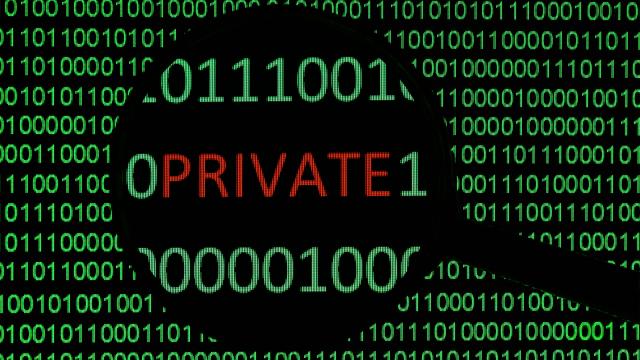For as ubiquitous as connectivity has become and how reliant we’ve grown on it, the internet is still a digital jungle where hackers easily steal sensitive information from the ill-equipped and where the iron-fisted tactics of totalitarian regimes bent on controlling what their subjects can access are common. So instead of mucking around in public networks, just avoid them. Use a VPN instead.
Between Wi-Fi spoofing, Honeypot attacks and Firesheep, public networks really are cesspools. But if you’re working remotely and need to access sensitive data on your company’s private servers, doing so from an unsecured public network like a public Wi-Fi hotspot could put that data, your company’s business and your job at stake.
Virtual Private Networks allow users to securely access a private network and share data remotely through public networks. Much like a firewall protects your data on your computer, VPNs protect it online. And while a VPN is technically a WAN (Wide Area Network), the frontend retains the same functionality, security and appearance as it would on the private network.
For this reason, VPNs are hugely popular with corporations as a means of securing sensitive data when connecting remote data centres. These networks are also becoming increasingly common among individual users — and not just torrenters. Because VPNs use a combination of dedicated connections and encryption protocols to generate virtual P2P connections, even if snoopers did manage to siphon off some of the transmitted data, they’d be unable to access it on account of the encryption. What’s more, VPNs allow individuals to spoof their physical location — the user’s actual IP address is replaced by VPN provider — allowing them to bypass content filters. So, you may live in Tehran but appear to live in Texas, enabling you to slip past the government filters and commit the treasonous act of watching a YouTube video. The horror.
Establishing one of these secure connections — say you want to log into your private corporate network remotely — is surprisingly easy. The user first connects to the public internet through an ISP, then initiates a VPN connection with the company VPN server using client software. And that’s it! The client software on the server establishes the secure connection, grants the remote user access to the internal network and — bing, bang, boom — you’re up to your elbows in TSP reports. The horror.
Many security protocols have been developed as VPNs, each offering differing levels of security and features. Among the more common are:
- IP security (IPSec): IPSec is often used to secure Internet communications and can operate in two modes. Transport mode only encrypts the data packet message itself while Tunnelling mode encrypts the entire data packet. This protocol can also be used in tandem with other protocols to increase their combined level of security.
- Layer 2 Tunnelling Protocol (L2TP)/IPsec: The L2TP and IPsec protocols combine their best individual features to create a highly secure VPN client. Since L2TP isn’t capable of encryption, it instead generates the tunnel while the IPSec protocol handles encryption, channel security, and data integrity checks to ensure all of the packets have arrived and that the channel has not been compromised.
- Secure Sockets Layer (SSL) and Transport Layer Security (TLS): SSL and TLS are used extensively in the security of online retailers and service providers. These protocols operate using a handshake method. As IBM explains, “A HTTP-based SSL connection is always initiated by the client using a URL starting with https:// instead of with http://. At the beginning of an SSL session, an SSL handshake is performed. This handshake produces the cryptographic parameters of the session.” These parameters, typically digital certificates, are the means by which the two systems exchange encryption keys, authenticate the session, and create the secure connection.
- Point-to-Point Tunnelling Protocol (PPTP): PPTP is a ubiquitous VPN protocol used since the mid 1990s and can be installed on a huge variety of operating systems has been around since the days of Windows 95. But, like L2TP, PPTP doesn’t do encryption, it simply tunnels and encapsulates the data packet. Instead, a secondary protocol such as GRE or TCP has to be used as well to handle the encryption. And while the level of security PPTP provides has been eclipsed by new methods, the protocol remains a strong one, albeit not the most secure.
- Secure Shell (SSH): SSH creates both the VPN tunnel and the encryption that protects it. This allows users to transfer information unsecured data by routing the traffic from remote fileservers through an encrypted channel. The data itself isn’t encrypted but the channel its moving through is. SSH connections are created by the SSH client, which forwards traffic from a local port one on the remote server. All data between the two ends of the tunnel flow through these specified ports.
These SSH tunnels are the primary means of subverting the government content filters described earlier. For example, if the filter prohibits access to TCP port 80, which handles HTTP, thereby cutting off all user access to the Internet. However, by using SSH, the user can forward traffic from port 80 to another on the local machine which will still connect to the remote server’s port 80. So as long as the remote server allows outgoing connections, the bypass will work. SSH also allows protocols that would otherwise be blocked by the firewall, say those for torrenting, to get past the wall by “wrapping” themselves in the skin of a protocol that the firewall does allow.
To actually create the VPN tunnel, the local machine needs to be running a VPN client. Open VPN is a popular — and free — multi-platform application, as is 1, 2 – What is My IP – Lifehacker – About – What is My IP Address – Lifehacker – How Stuff Works]
Top picture: alexskopje/Shutterstock; Diagram: Ludovic.ferre
